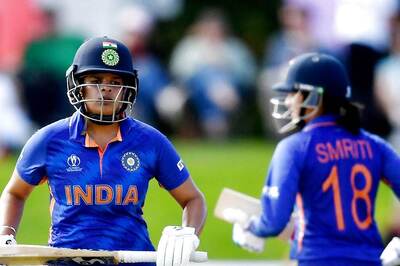
views
CHENNAI: Here is another very good reason to rein in your temptation for the yummy, chocolaty cakes, especially if you are a woman. If the bulging waistline was not reason enough, a recent study has indicated that craving for cakes could result in higher cancer risk.The study conducted by a team at Stockholm’s Karolinska Institute has given women with a sweet tooth plenty of reasons to worry. It has reportedly discovered that women who snacked on sugary items several times a week had 33 per cent higher chance of getting endometrial cancer, also known as uterine or womb cancer. The chances of contracting the disease jumped to 42 per cent if they indulged more than three times a week.Endometrial cancer affects the inner lining of the uterus. It is a common gynecologic cancer and is often diagnosed in women over the age of 55. Risk factors include old age, obesity, multiple sex factors, estrogen treatment and late menopause. The findings are based on a ten-year study that examined the link between sugary diets and the onset of womb cancer. The subjects included more than 60,000 women. In 1987, the women were handed out a set of questionnaires on their lifestyle, diet, weight and general health to be filled in. Ten years later, the exercise was repeated with the same set of women who were alive. They were specifically asked about their diet, sugar consumption during the last 10 years.While there was not apparent risk from soft drinks, jam or marmalade, the study observed that a daily intake of over 35 gm of sugar, which roughly works out to seven teaspoons, increased the risk of a tumour by at least 36 per cent.The study stated that the sugary overload through a sugary diet induced the release of more insulin that stimulated excessive growth of cells lining the uterus. It also boosted estrogen levels that triggered uncontrolled growth of cells. The researchers, who published the study in Cancer Epidemiology, Biomarkers and Prevention, maintained that the data might be of major public health significance, provided it is confirmed by studies among other populations.Obesity and cancer were old mates but the study laid special emphasis on the frequency of eating such food rather than the amount consumed.
















Comments
0 comment